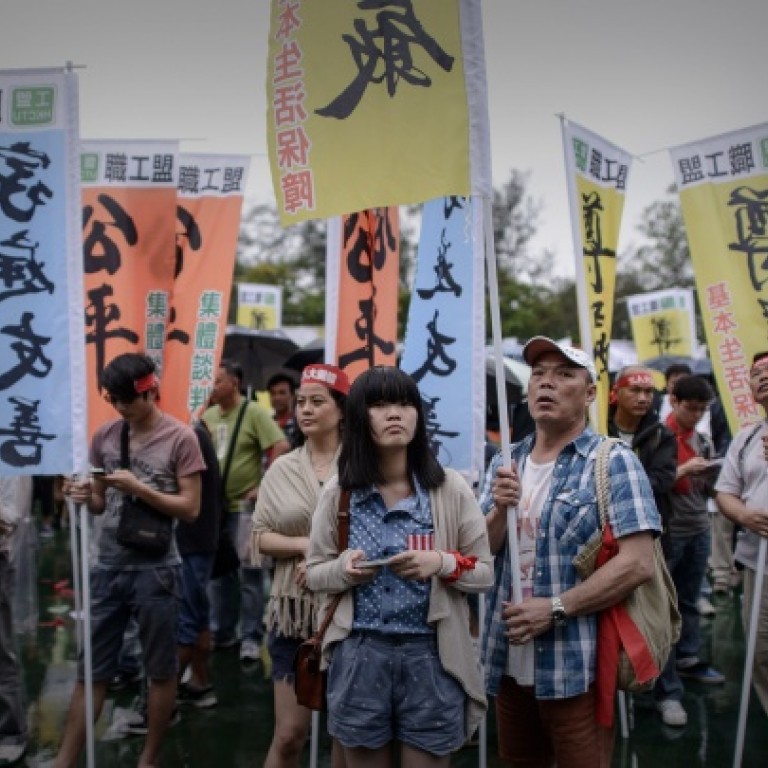
Workers let down by sorry state of Hong Kong labour law
Rick Glofcheski says striking dockers deserve support for speaking up
Trade unions came into existence in the 19th century as a response to the abuses of the capitalist system. They were needed to redress the power imbalance between employers and individual workers.
Today, trade unions are legal in Hong Kong, their status recognised in domestic legislation and in the Basic Law; even the right to strike is embedded in Article 27.
A trade union represents its members in collective bargaining. This function was highly valued in 20th-century Britain. Very few labour laws were enacted, the government adopting a policy of "positive non-intervention". Agreements reached through negotiation have the advantage of being for a fixed term and can be easily adapted to changing conditions.
In Hong Kong, there is no entitlement to collective bargaining, despite multiple chastisements of the government by the International Labour Organisation. This leads to an emasculated workforce, which has no choice but to accept on a take-it-or-leave-it basis whatever conditions are offered, including long hours, no breaks, no toilet facilities, wages that trail inflation, and a general decline in dignity. This is the reality experienced by countless workers here, including the Hongkong International Terminals dockworkers.
There are signs of hope. The Minimum Wage Ordinance was made law in 2010. The 2008 Race Discrimination Ordinance also made an important contribution to labour rights. However, there continue to be major gaps in the statutory framework, among them working hours and overtime pay laws; rest break laws; protection for part-time workers; family-friendly laws; laws recognising trade unions as bargaining units and collective bargains as legally enforceable.
Of the many gaps, perhaps none compares to the virtually untrammelled freedom to structure employment to avoid the application of all but the basic provisions of the Employment Ordinance, by using a sequence of short-term contracts that prevent workers achieving continuous employment status.
Employers are also free to outsource and subcontract their work to avoid the messy business of dealing with workers. In doing so, employers abdicate their social responsibilities and participate in the infamous "race to the bottom". The spoils of victory go to the subcontractor with the lowest bid, ensuring a minimum of wage levels and safety standards. Not surprisingly, in this environment, some workers may turn to industrial action. The irony is that despite a strike's constitutional status, there is no job protection for striking workers. There is nothing to prevent their dismissal on a month's notice.
Some commentators have derided the striking dockers as disruptive of port business and damaging to Hong Kong's reputation. Yet none of those commentators has addressed the undignified and unsafe conditions that have come to light, nor the unfavourable comparison of the dockers' wages with inflation rates.
Seen in the perspective of the weak labour law regime in Hong Kong (save for the professional classes), these dockers deserve our respect and support. They have put their jobs on the line in trying to be heard by their employers. They represent not only their own interests but all workers in Hong Kong. Through their actions, they have not only brought to the public's attention their scandalous working conditions, they have also exposed the parlous state of Hong Kong's labour laws. One can only hope the government is paying attention.
